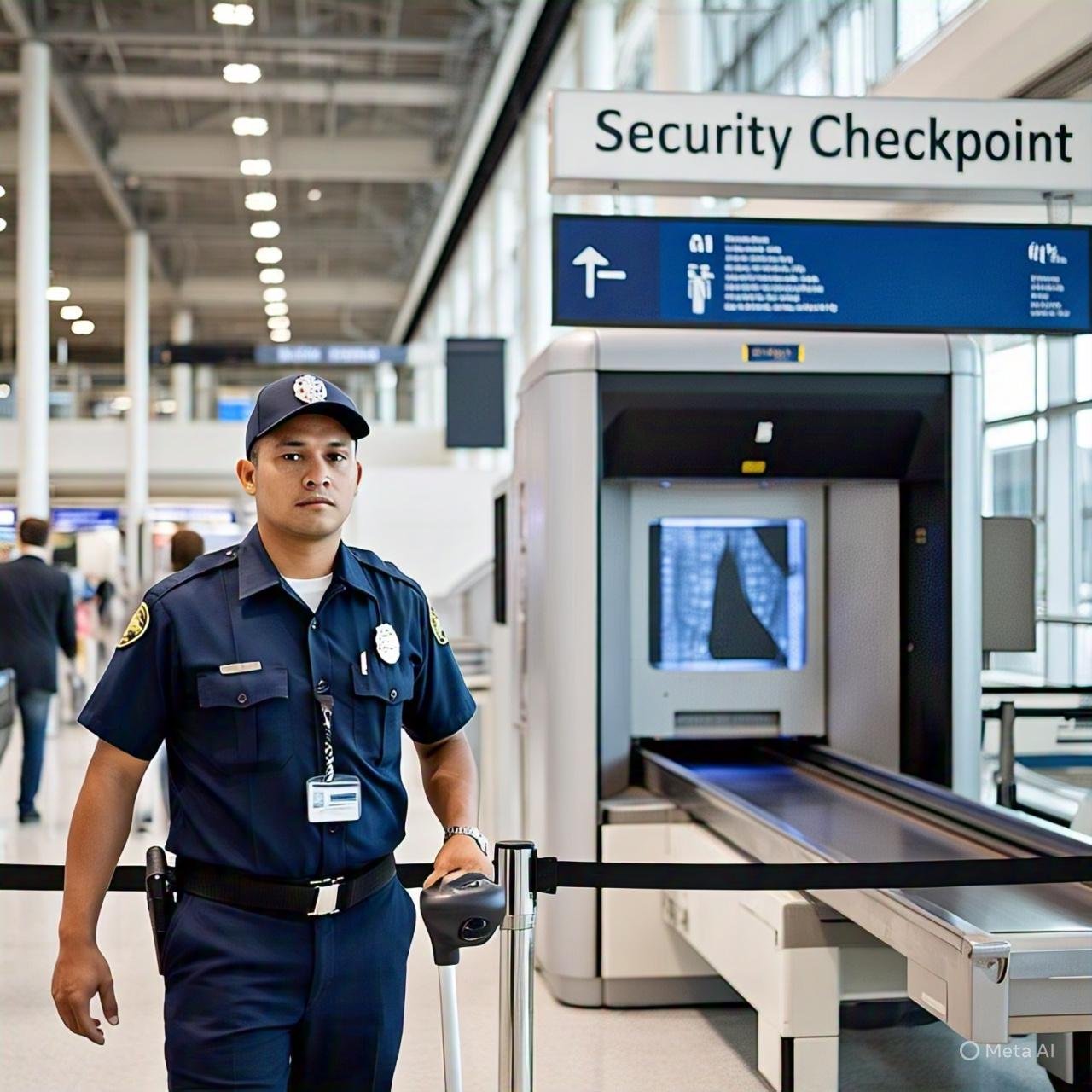-
أخر الأخبار
- استكشف
-
المدونات
The Role of Security Guards in Airport Security

Introduction to Airport Security
Airport security is a critical component of the travel experience, ensuring that millions of passengers move safely across global destinations daily. With increasing threats and heightened risks, maintaining a secure environment has never been more important. At the center of this effort are highly trained security guards who work tirelessly to keep airports safe.
Why Airport Security is Crucial
Airports are bustling hubs, making them potential targets for criminal activities and security threats. Effective airport security prevents terrorism, smuggling, theft, and other unlawful activities. Security guards play a vital role in monitoring activities, screening individuals, and ensuring that the airport remains a safe space for everyone.
The Key Responsibilities of Airport Security Guards
Security guards at airports perform numerous tasks. They are responsible for screening passengers and luggage, monitoring surveillance cameras, conducting patrols, and responding to emergencies. These duties ensure that all airport operations run smoothly without any disruptions.
How Security Guards Enhance Passenger Safety
Passenger safety is the top priority in any airport. Security guards ensure that travelers experience a safe environment from the time they enter the airport until they board their flights. Their visible presence deters crime and reassures passengers that the area is being well-monitored.
Screening and Surveillance: First Line of Defense
One of the critical roles security guards play is in passenger and baggage screening. They use metal detectors, X-ray machines, and physical searches to detect prohibited items. Surveillance is another essential aspect, with guards monitoring feeds from hundreds of cameras placed throughout the airport.
Emergency Response Preparedness
In the event of emergencies such as fires, medical situations, or security threats, security guards are among the first to respond. Their training prepares them to act quickly, communicate effectively, and coordinate with emergency services to ensure minimal impact and maximum safety.
Crowd Management and Control
Airports often handle thousands of passengers at any given time. Security guards help manage crowds, especially during peak travel seasons or unexpected flight delays. Their presence helps maintain order, reduce chaos, and ensure a smooth flow of passengers through security checkpoints.
Specialized Training for Airport Security Guards
Security guards working in airports undergo specialized training beyond the basics. This includes threat assessment, counterterrorism strategies, and advanced surveillance techniques. Many professional agencies, like security guard services providers, offer trained personnel specifically for high-risk environments such as airports.
Importance of Static Security Guards in Airports
Static security guards are stationed at key locations within the airport, providing constant monitoring and support. Whether at entrances, security gates, or luggage areas, they deter criminal activity and provide assistance when needed. To learn more about professional static guarding, you can explore this static security guards service to see how they add an extra layer of protection.
Coordination with Other Security Agencies
Security guards often work alongside federal agencies, police, and airport staff. This coordination ensures that all security efforts are integrated, providing a comprehensive safety net. Effective communication and collaboration between teams are essential for handling large-scale operations and emergencies.
Monitoring Restricted Areas
Airports have numerous restricted zones that require constant surveillance, including runways, maintenance hangars, and staff-only areas. Security guards ensure only authorized personnel can access these locations, maintaining the integrity and safety of the overall airport operations.
Role in Deterring Threats and Criminal Activity
The visible presence of uniformed security guards alone serves as a powerful deterrent against potential threats. Criminals are less likely to attempt unlawful activities when they see active and attentive security personnel in key areas around the airport.
Customer Assistance and Public Relations
Beyond their security duties, guards also assist travelers. Whether it's providing directions, helping with luggage, or answering security questions, guards contribute to a positive passenger experience. Their helpful attitude enhances the airport’s reputation for being safe and welcoming.
Use of Technology in Modern Airport Security
Technology plays a significant role in modern airport security. Guards now operate sophisticated equipment like biometric scanners, automated surveillance systems, and AI-based threat detection tools. Staying updated with technological advancements is essential for maintaining a robust security framework.
Ensuring Compliance with Aviation Regulations
Airports must comply with strict international and national aviation security standards. Security guards help ensure these regulations are followed diligently, conducting audits, inspections, and continuous monitoring to meet compliance requirements.
Challenges Faced by Airport Security Guards
Working as an airport security guard comes with challenges, including dealing with high-stress situations, managing large crowds, and adapting to evolving threats. Continuous training, support, and teamwork are crucial to overcoming these challenges effectively.
The Future of Airport Security
As technology evolves and threats become more complex, the role of airport security guards will continue to grow. Advanced AI surveillance, facial recognition, and predictive analytics will assist guards in enhancing airport security standards in the coming years.
Frequently Asked Questions (FAQs)
Q1. What qualifications are needed to become an airport security guard?
Airport security guards typically require a security license, specialized training, and sometimes background checks, depending on the country and airport.
Q2. How do airport security guards respond to emergencies?
They follow detailed emergency response protocols, coordinating with law enforcement and medical teams to ensure swift action.
Q3. What equipment do airport security guards use?
They use metal detectors, X-ray scanners, surveillance systems, radios, and sometimes body cameras for monitoring and communication.
Q4. Are airport security guards involved in passenger screening?
Yes, they are a crucial part of the passenger screening process, ensuring no prohibited items are brought into secure airport areas.
Q5. How do security guards manage large crowds at airports?
By maintaining visibility, providing guidance, controlling access points, and using crowd control barriers when necessary.
Q6. What are static security guards in an airport?
They are guards stationed at fixed posts to monitor and protect key areas such as entrances, baggage claims, and staff access points.





